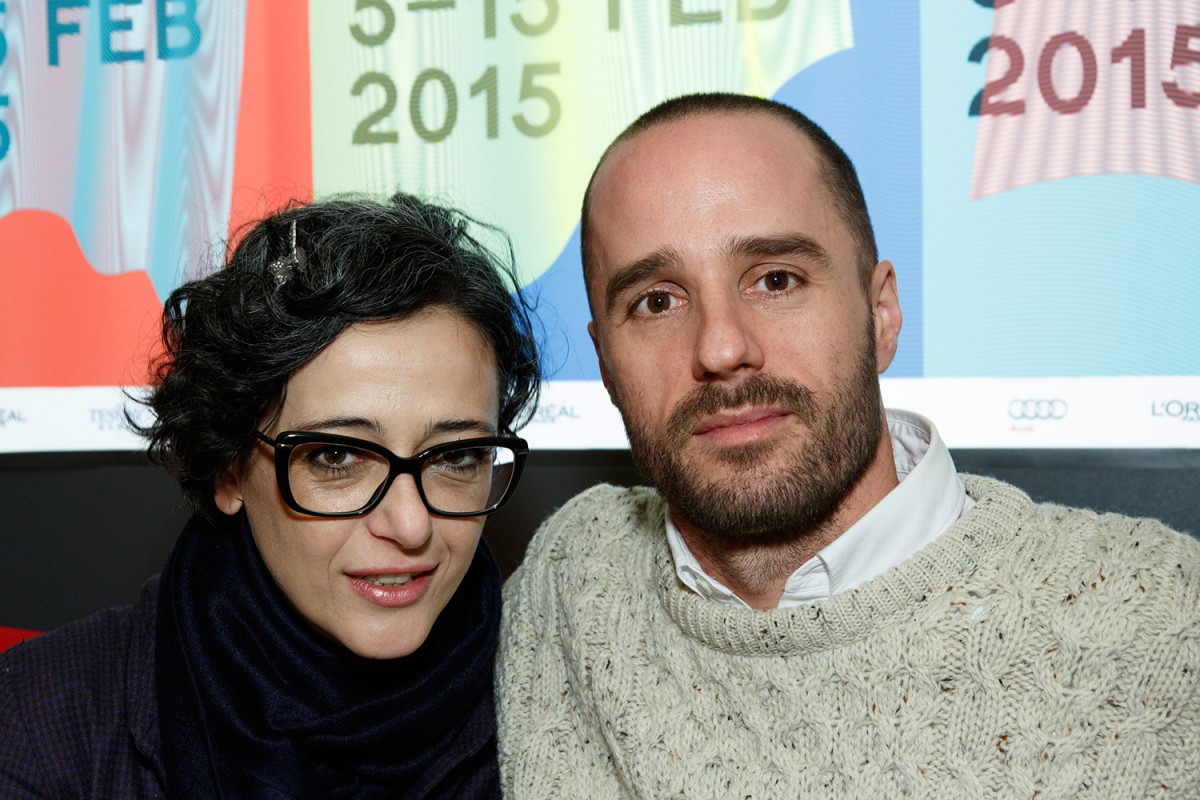Mexican director Alejandro González Iñarritu’s Birdman (or the Unexpected Virtue of Ignorance) was awarded the Oscar for Best Picture this evening, becoming the first production directed by a Latino filmmaker to win the top honors in the history of the Academy Awards.
González Iñárritu, 51, received the award as a producer of the film, and dedicated the award to his fellow Mexicans. "I pray that we can find and build a government that we deserve, and the ones that live in this country, who are a part of the latest generation of immigrants in this country, I just pray that they can be treated with the same dignity and respect as the ones who came before and built this incredible immigrant nation," he said. "I am very, very thankful, grateful, humbly honored by the Academy for this incredible recognition," Iñárritu added. "This is crazy."
The Mexican filmmaker was also awarded the Oscars for Best Director and Best Original Screenplay, along with Argentinean screenwriters Armando Bo and Nicolás Giacobone. With the three Oscars he won this evening, he automatically become the Mexican national to have won the most Oscars.
González Iñarritu’s feat comes exactly one year later after Mexican filmmaker Alfonso Cuarón won the Academy Award for Best Director, making it the second year in a row a Mexican national wins the Oscar in the same category.
Mexican DP Emmanuel Lubezki won the Oscar for Best Cinematography for his work in Birdman. It was the second Oscar win for Lubezki in a row, as last year he won the Academy Award in the same category for his work in Cuarón’s Gravity. Lubezki became the fourth Mexican to win two Oscars after Cuarón, actor Anthony Quinn, and art director Emile Kuri.
The 87th Annual Academy Awards were presented at the Dolby Theatre in Hollywood, California.


 The 32nd Miami International Film Festival has announced its line up, which promises to be another stellar showcase of Latin American cinema. The festival will screen 125 feature, documentary and short films from 40 countries during its ten day run and will kick off with the wonderfully deranged satire and Academy Award nominee for Best Foreign Language Film, Wild Tales / Relatos salvajes by Damián Szifron.
The 32nd Miami International Film Festival has announced its line up, which promises to be another stellar showcase of Latin American cinema. The festival will screen 125 feature, documentary and short films from 40 countries during its ten day run and will kick off with the wonderfully deranged satire and Academy Award nominee for Best Foreign Language Film, Wild Tales / Relatos salvajes by Damián Szifron. The Latino films competing for the Knight Documentary Achievement Award include the Mexican film, Before We Are Forgotten / Antes de que nos olviden from Matías Gueilburt; from Peru, Finding Gastón/ Buscando a Gastón by Patricia Perez; from Colombia, Playing Lecuona by Pavel Giroud and Juan Manuel Villar; from Brazil, The Salt of the Earth / Le sel de la terre by Juliano Ribeiro Salgado and Wim Wenders; from Chile, Tea Time / La once by Maite Alberdi; and The Holders by Carla Forte. The award comes with a $10,000 cash prize given to the most engaging feature-length documentary.
The Latino films competing for the Knight Documentary Achievement Award include the Mexican film, Before We Are Forgotten / Antes de que nos olviden from Matías Gueilburt; from Peru, Finding Gastón/ Buscando a Gastón by Patricia Perez; from Colombia, Playing Lecuona by Pavel Giroud and Juan Manuel Villar; from Brazil, The Salt of the Earth / Le sel de la terre by Juliano Ribeiro Salgado and Wim Wenders; from Chile, Tea Time / La once by Maite Alberdi; and The Holders by Carla Forte. The award comes with a $10,000 cash prize given to the most engaging feature-length documentary. The Latino films included in the Cinema 360˚ section include Architecture of Color / A arquitetura da cor by José Henrique Fonseca and Priscilla Lopes, Ciudad Delirio by Chus Gutiérrez, Panama Canal Stories / Historias del canal by Carolina Borrero, Pinky Mon, Luis Franco, Abner Benaim and Pituka Ortega Heilbron, Sand Dollars / Dólares de arena by Laura Amelia Guzmán and Israel Cárdenas, Tango Glories / Fermín: Glorias del Tango and Venice / Venecia by Kiki Álvarez.
The Latino films included in the Cinema 360˚ section include Architecture of Color / A arquitetura da cor by José Henrique Fonseca and Priscilla Lopes, Ciudad Delirio by Chus Gutiérrez, Panama Canal Stories / Historias del canal by Carolina Borrero, Pinky Mon, Luis Franco, Abner Benaim and Pituka Ortega Heilbron, Sand Dollars / Dólares de arena by Laura Amelia Guzmán and Israel Cárdenas, Tango Glories / Fermín: Glorias del Tango and Venice / Venecia by Kiki Álvarez. Mexican filmmaker Alejandro González Iñárritu won the Directors Guild of America (DGA) award for Best Feature Film Director for Birdman, beating out the favorite Boyhood’s Richard Linklater.
Mexican filmmaker Alejandro González Iñárritu won the Directors Guild of America (DGA) award for Best Feature Film Director for Birdman, beating out the favorite Boyhood’s Richard Linklater.



